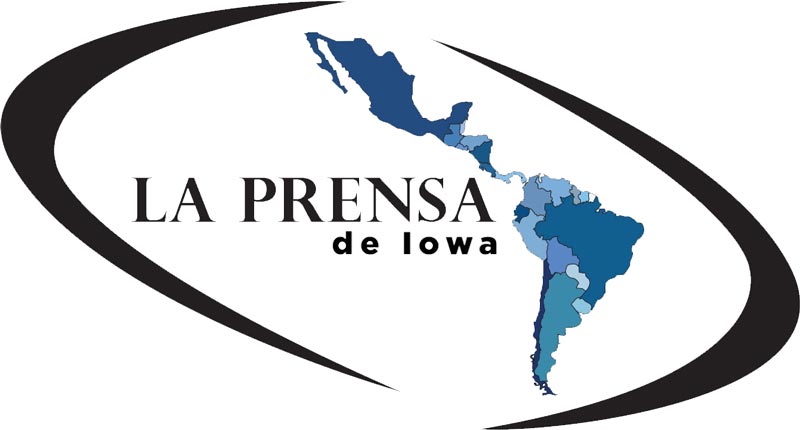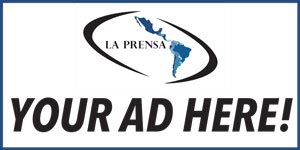Conozca sus derechos con Sonia Parras La ley SF 2340
/Sonia Parras Konrad
La ley SF 2340, recientemente firmada en Iowa, aborda varios aspectos relacionados con la inmigración ilegal, específicamente el reingreso ilegal al estado. Bajo esta ley, el reingreso ilegal después de haber sido removido de los EE. UU. se convierte en un delito estatal, permitiendo que la policía estatal y local arreste a inmigrantes indocumentados y que los jueces estatales ordenen su remoción a un puerto de entrada.
La ley también establece prohibiciones sobre los lugares donde se puede realizar un arresto y otorga inmunidad de responsabilidad e indemnización a las acciones de cumplimiento de la ley relacionadas. Adicionalmente, establece restricciones de sentencias y proporciona penas para aquellos que sean encontrados en violación de esta legislación.
Este tipo de legislación a nivel estatal crea conflictos en materia de inmigración con el gobierno federal, es un agravio a aquellos inmigrantes que siguen la ley y son ahora residentes permanentes y viola sus derechos constitucionales.
LUCHANDO LEGALMENTE EN CONTRA DE ESTA LEY INCONSTITUCIONAL
El 9 de mayo de 2024, la ACLU de Iowa presentó una solicitud para bloquear la ley SF 2340, alegando que es una de las leyes antiinmigrantes más extremas y discriminatorias del país. Según la ACLU, esta ley permitiría arrestos basados en el estatus migratorio federal de las personas y autorizaría a los jueces de Iowa a ordenar la deportación o encarcelamiento de individuos antes de que tengan la oportunidad de buscar protección humanitaria. La ACLU critica que esta ley fomenta el perfil racial y consume recursos ya limitados de los tribunales estatales y fuerzas del orden, además de amenazar la seguridad de las familias y comunidades en Iowa. Esta acción legal es parte de los esfuerzos continuos por desafiar las leyes que consideran inconstitucionales o extremadamente punitivas hacia las comunidades migrantes.
Exactamente, la entrada en vigor de la ley SF 2340 en julio de 2024 podría verse afectada si los jueces de distrito deciden en contra de la ley en respuesta a la demanda presentada por la ACLU y otros desafíos legales. Las decisiones judiciales podrían retrasar o incluso prevenir la implementación de la ley, dependiendo de los hallazgos sobre su constitucionalidad y los argumentos presentados en corte. En situaciones como esta, es común que las leyes controvertidas sean bloqueadas temporalmente mientras se resuelven las disputas legales.
QUE PUEDO HACER MIENTRAS QUE SE DESARROLLA ESTA BATALLA LEGAL
Si le preocupa ser afectado por la ley SF 2340 mientras se resuelven los desafíos legales, aquí hay algunos pasos que podrías considerar:
1. Consulta legal: Es esencial buscar asesoramiento legal de abogados especializados en leyes de inmigración. Pueden ofrecerte la orientación más precisa y actualizada sobre cómo proceder en tu situación particular y qué medidas de protección legal podrías tomar.
2. Conoce tus derechos: Informarte sobre tus derechos puede ser crucial. Organizaciones como la ACLU ofrecen recursos y guías sobre los derechos de los inmigrantes frente a las fuerzas del orden. Por ejemplo, tienes el derecho a permanecer en silencio y a no firmar ningún documento sin un abogado presente.
3. Preparación de documentos: Asegúrate de tener todos tus documentos de inmigración en orden y fácilmente accesibles en caso de que necesites demostrar tu estatus legal.
4. Mantente informado: Mantén seguimiento de las noticias y actualizaciones sobre la ley SF 2340 y los desafíos legales en curso. Las decisiones judiciales y los cambios en la ley pueden influir directamente en tu situación.
5. Apoyo comunitario: Considera conectarte con grupos comunitarios o organizaciones que trabajan con la comunidad inmigrante como MMJ y Caridades Catolicas. Pueden ofrecer apoyo, información y recursos adicionales.
6. Precaución en la vida cotidiana: Dada la posibilidad de que esta ley incremente el perfil racial y las detenciones basadas en la apariencia o el origen étnico, es prudente ser consciente de tus derechos durante cualquier interacción con la policía o autoridades de inmigración.
Si necesitas ayuda CONSULTA con nuestras oficinas llamando al 515 255-9317.
Translation
Know your rights with Sonia Parras The law SF 2340
Sonia Parras Konrad
SF 2340, recently signed in Iowa, addresses several issues related to illegal immigration, specifically illegal re-entry into the state. Under this law, illegal reentry after being removed from the U.S. becomes a state crime, allowing state and local police to arrest undocumented immigrants and state judges to order their removal to a port of entry.
The law also establishes prohibitions on where an arrest can be made and provides immunity from liability and indemnification for related law enforcement actions. Additionally, it establishes sentencing restrictions and provides penalties for those found in violation of this legislation.
This type of legislation at the state level creates immigration conflicts with the federal government, is an affront to those immigrants who follow the law and are now permanent residents, and violates their constitutional rights.
LEGALLY FIGHTING AGAINST THIS UNCONSTITUTIONAL LAW
On May 9, 2024, the ACLU of Iowa filed a petition to block SF 2340, claiming it is one of the most extreme and discriminatory anti-immigrant laws in the country. According to the ACLU, this law would allow arrests based on people's federal immigration status and would authorize Iowa judges to order the deportation or imprisonment of individuals before they have the opportunity to seek humanitarian protection. The ACLU criticizes that this law encourages racial profiling and consumes already limited resources of state courts and law enforcement, in addition to threatening the safety of families and communities in Iowa. This legal action is part of ongoing efforts to challenge the laws that they consider unconstitutional or extremely punitive towards migrant communities.
Exactly, the entry into force of SF 2340 in July 2024 could be affected if district judges rule against the law in response to the lawsuit filed by the ACLU and other legal challenges. Judicial decisions could delay or even prevent implementation of the law, depending on findings on its constitutionality and arguments presented in court. In situations like this, it is common for controversial laws to be temporarily blocked while legal disputes are resolved.
WHAT CAN I DO WHILE THIS LEGAL BATTLE IS DEVELOPING?
If you are concerned about being affected by SF 2340 while legal challenges are resolved, here are some steps you might consider:
1. Legal consultation: It is essential to seek legal advice from attorneys specialized in immigration law. They can offer you the most accurate and up-to-date guidance on how to proceed in your particular situation and what legal protection measures you could take.
2. Know your rights: Educating yourself about your rights can be crucial. Organizations like the ACLU offer resources and guides on the rights of immigrants against law enforcement. For example, you have the right to remain silent and not sign any documents without a lawyer present.
3. Document Preparation: Make sure you have all your immigration documents in order and easily accessible in case you need to prove your legal status.
4. Stay informed: Keep track of news and updates on SF 2340 and ongoing legal challenges. Court decisions and changes in the law can directly influence your situation.
5. Community support: Consider connecting with community groups or organizations that work with the immigrant community such as MMJ and Catholic Charities. They can offer additional support, information and resources.
6. Caution in Everyday Life: Given the potential for this law to increase racial profiling and arrests based on appearance or ethnicity, it is prudent to be aware of your rights during any interaction with police or immigration authorities.
If you need help, CONSULT our offices by calling 515 255-9317.









































